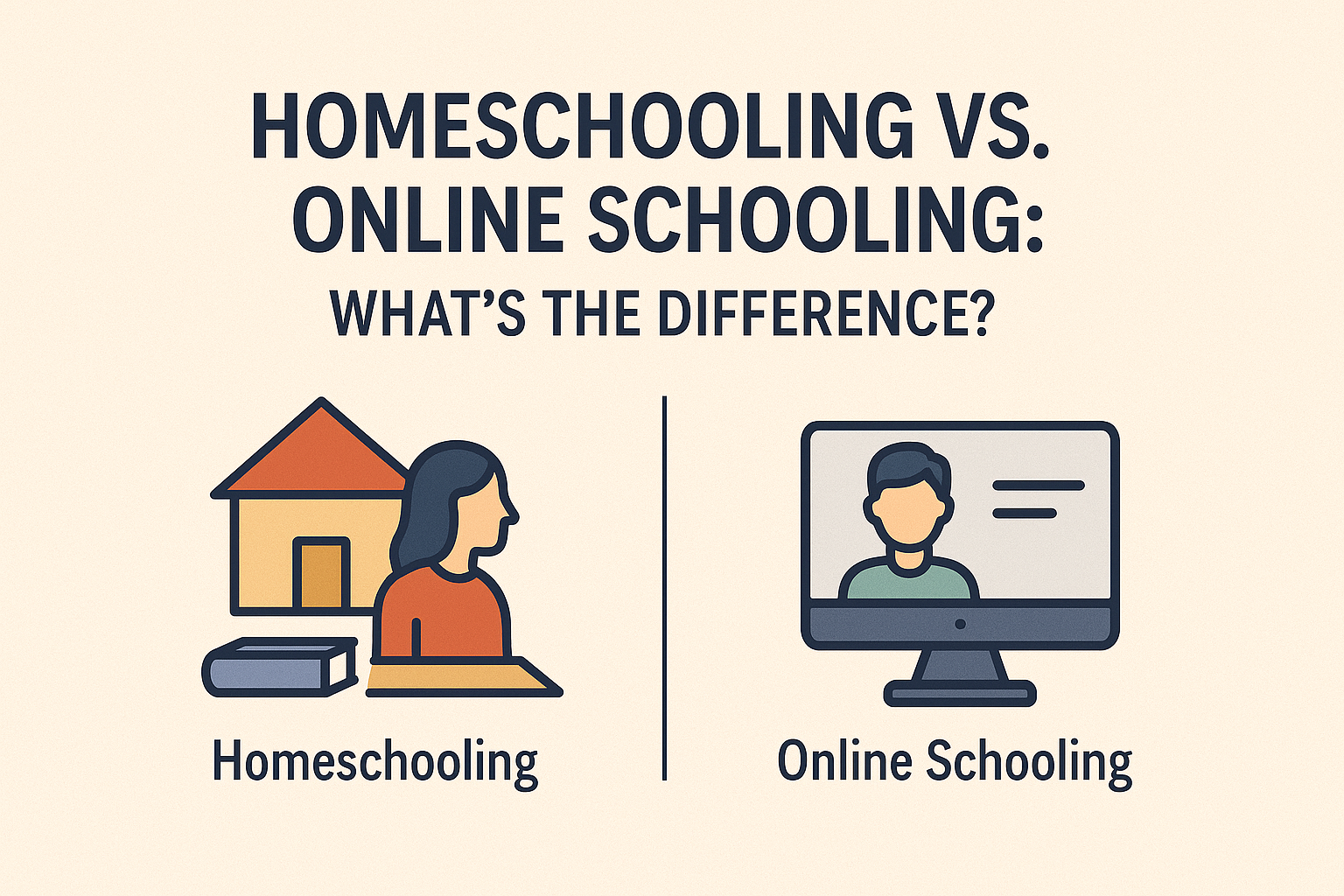
Homeschooling vs. Online Schooling: What’s the Difference?
As education continues to evolve, more families are exploring alternatives to traditional schooling. Two popular options are homeschooling and online schooling. While both offer flexibility and personalized learning, they are not the same. Understanding the differences can help parents make informed choices based on their family’s needs and goals.
What is Homeschooling?
Homeschooling is a parent-led education model where children learn primarily at home. Parents have full control over the curriculum, teaching methods, and daily schedule. Learning can be done through textbooks, hands-on activities, field trips, or even educational co-ops.
Key Features of Homeschooling:
- Custom curriculum chosen by parents.
- Flexible pace and teaching style.
- Education tailored to the child’s interests and learning style.
- Parents serve as the primary instructors or facilitators.
Example: A homeschooling parent may combine a literature-based approach with outdoor science experiments and Qur’anic studies to meet both academic and spiritual goals.
What is Online Schooling?
Online schooling, also called virtual school or cyber school, is education delivered through an accredited institution via the internet. Students follow a structured curriculum, attend virtual classes, and are taught by certified teachers.
Key Features of Online Schooling:
- Curriculum provided by an online school or program.
- Set schedules, deadlines, and assessments.
- Professional teachers and academic support.
- Can be part-time or full-time enrollment.
Example: A student enrolled in an online academy might attend live video classes daily, submit assignments through a learning portal, and take standardized tests.
Homeschooling vs. Online Schooling: Key Differences
| Aspect | Homeschooling | Online Schooling |
|---|---|---|
| Who Teaches | Parent or tutor | Certified teachers |
| Curriculum | Chosen by parents | Set by the school |
| Flexibility | Highly flexible | Somewhat structured |
| Accreditation | Optional (depends on parents) | Usually accredited |
| Learning Environment | Customized to the child | Digital classroom experience |
Pros and Cons
Homeschooling
- Pros: Full control, faith-based integration, flexible schedule.
- Cons: Requires significant parental time and effort, potential for limited peer interaction.
Online Schooling
- Pros: Structured curriculum, teacher support, accredited diploma options.
- Cons: Screen time concerns, less freedom in content or pace.
Which One is Right for Your Family?
The best choice depends on your child’s learning style, your teaching ability, available time, and educational goals. If you value total customization and are confident guiding your child’s education, homeschooling may be ideal. If you prefer professional instruction with flexibility, online schooling can offer a solid alternative to traditional classrooms.
Tip: Some families combine both—using online classes as part of a broader homeschool curriculum.
Final Thoughts
Both homeschooling and online schooling provide meaningful alternatives to conventional education. The key is to choose what aligns best with your values, lifestyle, and your child’s unique needs. With the right approach, either path can lead to a successful and fulfilling learning experience.
Still deciding? Take time to explore curriculum samples, talk to other families, and pray for guidance. Education is a journey—choose the route that helps your child thrive.
